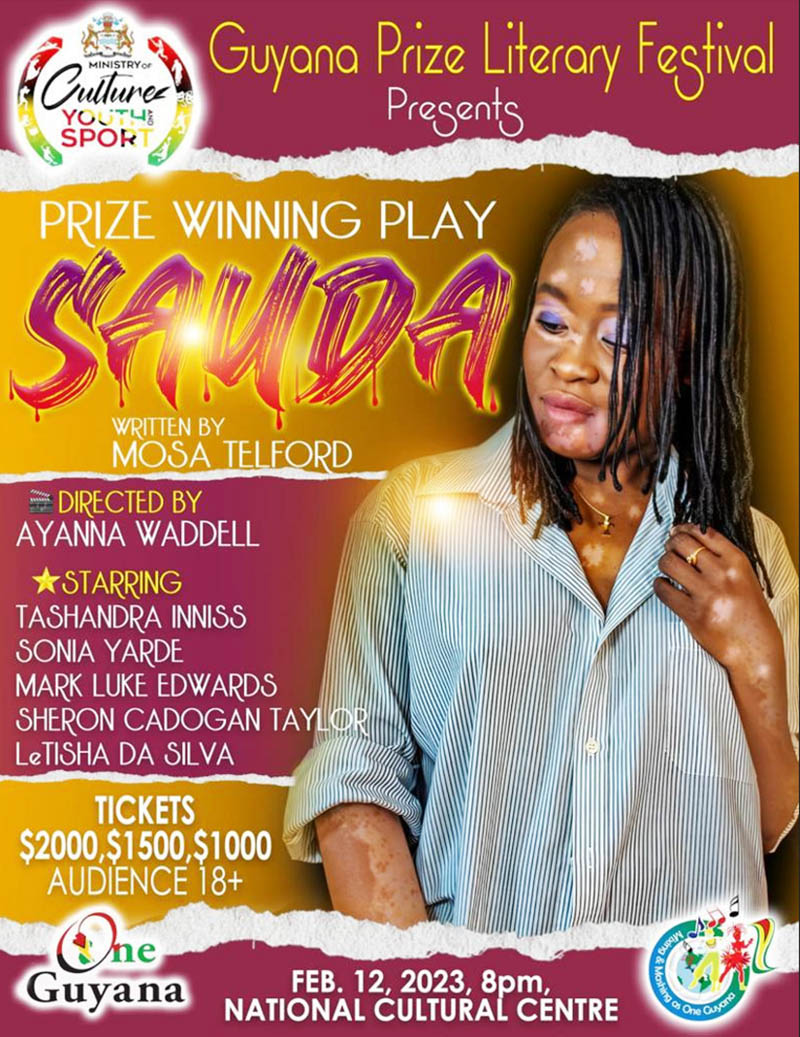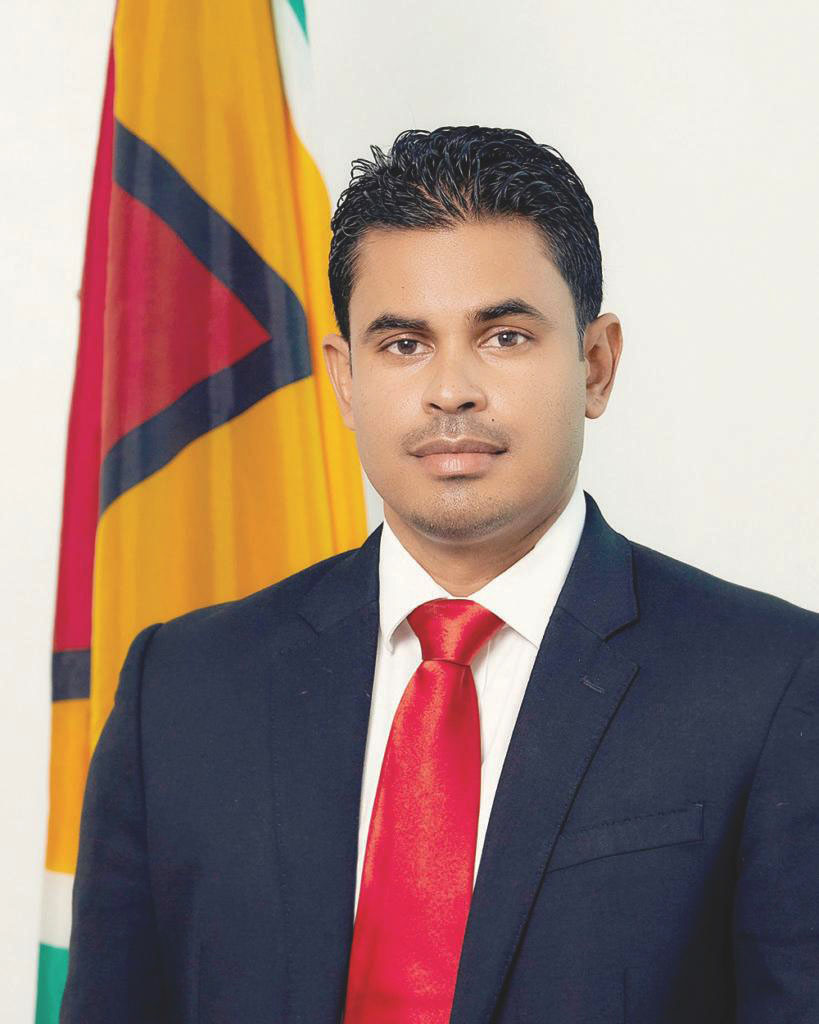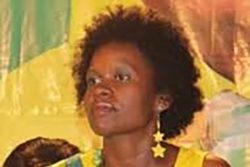 So far in 2023, theatre in Guyana has had some encouraging moments and conditions. The number of public productions and events have surpassed the record for the same period last year, there have been some notable innovations, important interventions from the Ministry of Culture and an interesting factor where the earnings of individual practitioners are concerned. The state of the industry is intriguingly poised.
So far in 2023, theatre in Guyana has had some encouraging moments and conditions. The number of public productions and events have surpassed the record for the same period last year, there have been some notable innovations, important interventions from the Ministry of Culture and an interesting factor where the earnings of individual practitioners are concerned. The state of the industry is intriguingly poised.
There has been a succession of very different kinds of offerings on stage that have gone across nearly the entire spectrum. Stage plays could not have asked for a better beginning with the inclusion of dramatic production in the newly revised Guyana Prize Literary Festival. The play staged was Sauda by Mosa Telford, the 2010 winner of the Guyana Prize performed by the National Drama Company (NDC) in February. This was followed in April by two plays, also of important national stature – Duenne by Paloma Mohamed, the 1998 Guyana Prize Winner, and The Tramping Man by Ian McDonald. Both of these were staged at the Theatre Guild in collaboration with the University of Guyana (UG) in celebration of its 60th Anniversary.

By the end of May, Guyana’s 57th Independence Anniversary was decorated by the staging of yet another winner of the Guyana Prize for Drama – Makantali by Harold Bascom – performed by an amalgamated group of practitioners. Another stage play came forward in August when the NDC was again in action, performing the dark comedy Que Que by Subraj Singh in a most fascinating fashion. It was performed on the street side as part of a cultural festival offered by the Ministry of Culture in honour of emancipation and of the 1823 Demerara Slave Rebellion.
Three short plays were included in a programme “Drama Explosion” presented by the National School of Theatre Arts and Drama (NSTAD) in July as work done by secondary school teachers at the end of the annual summer curriculum offered by NSTAD in an affiliated programme with the Unit of Allied Arts. Performances also included story-telling. In keeping with a growing trend, teachers such as Lloyd Thomas at Tutorial and Tanika Caldeira at West Demerara presented the work of their Caribbean Advanced Proficiency Examination and Caribbean Secondary Education Certificate exam students to the public. At the same time, professional theatre in Linden witnessed the performance of the latest play from Mike James and company, a comedy titled For Better or Curse.
In other forms of theatre, there were two very interesting items both produced by Guyana’s most accomplished theatre producer Gem Madhoo-Nascimento. The first was an evening of dramatic readings staged at the Nascimento residence. The second was a variety show at the Theatre Guild Playhouse – a social occasion to celebrate the birthday of prominent accountant and attorney-at-law Christopher Ram. These merit discussion because they were cited as examples of a disappearing (if not already extinct) exhibition of culture and the arts in Guyanese society. They recall, for example, the several performances hosted by the Taitt family at Woodbine House in the Georgetown of a past age.
There were also others, such as the concert featuring celebrated Guyanese flautist Keith Waithe hosted by UG at the Playhouse, in addition to the series of performances titled “UG’s Got Talent”. Productions which were more public included the Mother’s Day concerts and the annual end-of-workshop production “Emerge 10” showcasing the work of children, staged by Simone Dowding under Purple Arts Productions.
Up to this point, the Ministry of Culture and its Department of Culture have had a remarkable year. The ministry was responsible for most of the other performances during the year. Under the NSTAD portfolio, the annual National Poetry Slam was included in the Guyana Prize Literary Festival in February. Then there were a number of events to mark emancipation in August. These included the concert “August Morning: Opening of the Day” and dinner hosted at State House by the President with a variety of music, dance and drama theatrically woven into a theme of liberation.
Then there was the grand variety show titled “The 1823 Bi-Centennial Cultural Festival and Concert” staged at a street-side location in Georgetown in assimilation of the post-emancipation soirees of past years. The theme was African-type folk performances, since it was also tied to the commemoration of the 1823 uprising. A smaller ceremony devoted to the 200th Anniversary of that revolt was also held, at the centre of which were also drama, dance and music.
This major involvement of the government is at the core of the issues raised around what under normal circumstances can be celebrated as a remarkable year and commendable performance by the national administration.
Minister of Culture Charles Ramson Jnr has been responsible for a series of innovative ideas. Under this overall intervention were several considerations. Progressive strides in the Literary Festival followed the welcome return of the Guyana Prize, discontinued by the previous government. The festival was scheduled as part of the Mashramani celebrations, which lent it great depth and variety, while strengthening it as an intellectual post-colonial expression of Guyana as a republic.
The performance of the theatre was included in the literary festival programming as a considerable advancement of performing arts and drama. The performance of one of the plays that won the Guyana Prize was part of a larger project. It was Minister Ramson’s proposal that the winners of the Guyana Prize for Drama, most of which had been lying dormant for years, should be performed on stage. The Ministry is putting up money to fund the production costs for the staging of one of these plays every quarter. For 2023, so far, two have been performed – Sauda and Makantali.
There are arguments that the ministry ought not to enter the market as a producer of theatre, but should be a facilitator and enabler for private producers to function. This position is correct. However, what is foremost in the ministry’s intervention is that all it is doing is providing the stimulus and the funding. Members of the local private theatre community are expected to select the plays and propose who will produce them. All of the money gained from the sale of tickets is given to the persons/groups who produce and perform the plays. The usual National Cultural Centre (NCC) fees and taxes are waived.
The idea here is that not only will the national audience gain from seeing performances of this theatre, but local practitioners will earn income from the productions. When that is added to the several public events at which local groups, companies and practitioners have performed, it presents a picture of increased opportunities for them to earn. To take this further, if the payments are examined, it is clear that what is paid to actors, actresses, directors and technical theatre staff is considerably higher than the going market rate.
While this might sound like excellent progress, it actually introduces a dilemma. Theatre practitioners in Guyana have always been underpaid for their work, because of what the small market in the country is able to generate. By paying higher, the ministry has been creating the opportunity for something more resembling a decent wage. However, in reality, this potentially creates a situation in which private producers will find it even more difficult to produce plays because they cannot match what actors and actresses are now getting from the Guyana Prize plays and the other ministry events. Performers might now demand the same rates and private producers will most likely be unable to pay. This good fortune has driven up the already prohibitive cost of production.
If this scenario plays out, we are not likely to see any increase in the production of plays on the local stage. Yet, there is more that the ministry can do to forestall this dilemma. It brings us back to the very demanding menu of fees and taxes that producers have to pay in order to stage a production at the NCC. They pay VAT, taxes, theatre rental, ushers’ fees and transportation, extra charge for technical rehearsals and a percentage of each ticket sold (or given as complimentary). Already this has deterred production; many producers have ceased operation.
Today, only farce and comedy are likely to sell out the house. The only exception is the annual dance drama Naya Zamana, which attracts audiences not only because it is an excellent production, but because it is the only performance offering a brand of theatre – Indian dance drama – for which there is a very high demand. Other types of drama hesitate to take the risk of box office loss. The ministry ought not to see the NCC as a business where drama and dance are concerned, but as a facility to enable dramatic production. This calls for a reconsideration of the schedule of fees, taxes and payments for rental of the NCC. The minister has distinguished himself by initiating face-to-face meetings and discussions with the local theatre practitioners. He can do even better by looking into reconsideration of those NCC costs.










